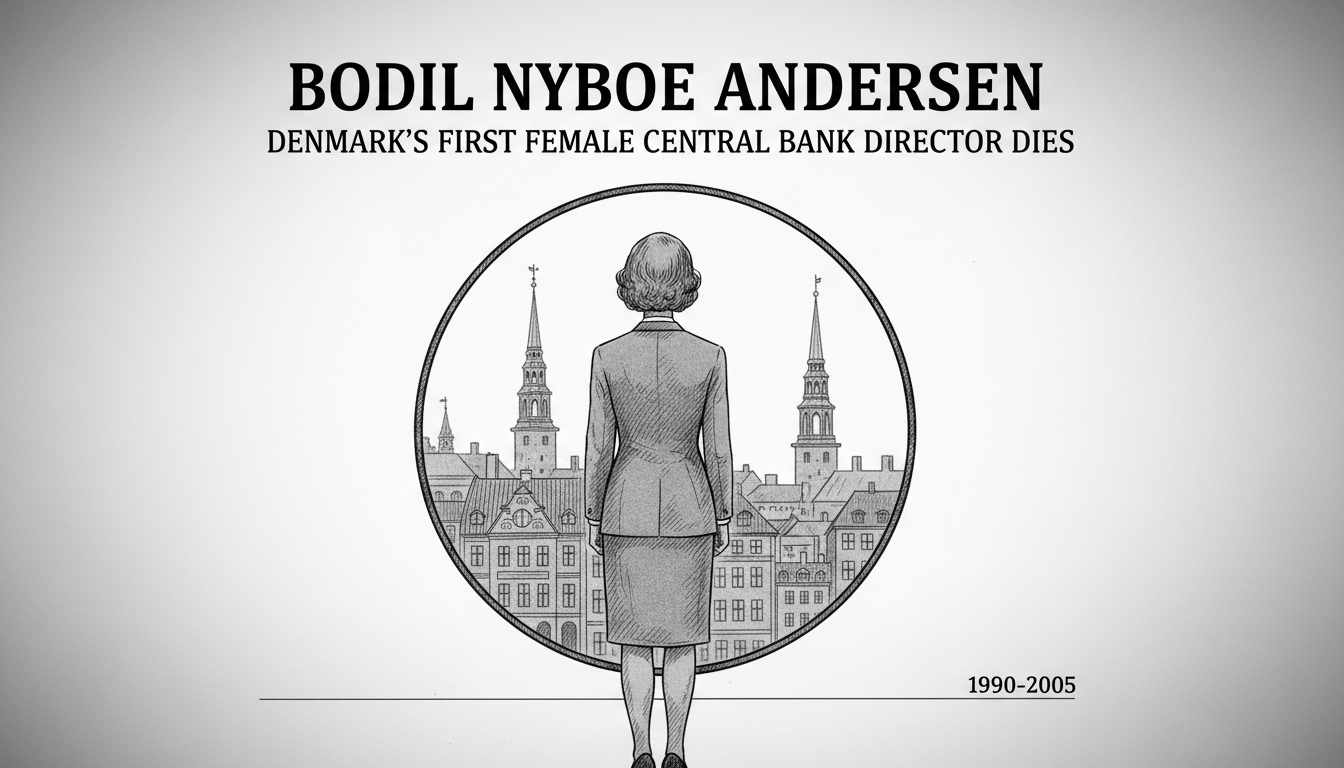Bodil Nyboe Andersen, Denmark's pioneering female central bank director, has died at age 85. Her sons Kasper and Johan Holten confirmed the news in a statement. She led Denmark's National Bank from 1990 to 2005, breaking barriers as Denmark's first woman in that role and among the world's first female central bank governors.
Andersen's career trajectory reflects Denmark's economic evolution during her tenure. She began in the Ministry of Economic Affairs before moving to academic roles at Copenhagen University. Her banking career advanced at Andelsbanken before reaching the National Bank's highest office. This progression mirrors Denmark's own economic development from traditional banking toward modern financial systems.
Her leadership spanned crucial periods for Danish monetary policy. She guided the krone through European exchange rate mechanisms and helped maintain Denmark's economic stability. The Copenhagen business community remembers her as a steady hand during financial market fluctuations. Her influence extended beyond banking to broader economic policy discussions in the Øresund region.
Andersen's academic credentials were exceptional. She graduated from Copenhagen University with the second-highest average in her economics program. Only her father, former Economic Minister Poul Nyboe Andersen, achieved higher marks in 1939. This academic excellence translated into practical financial leadership that shaped Danish monetary policy.
Her appointment as Denmark's first female central bank director marked a significant milestone for gender equality in Nordic financial institutions. She demonstrated that women could lead at the highest levels of economic policy-making. This opened doors for subsequent generations of women in Danish finance and banking sectors.
Beyond central banking, Andersen served as the first female president of the Danish Red Cross. She received the Business Woman of the Year honor in 1989 and was knighted in the Order of the Dannebrog. These recognitions highlight her broad impact on Danish society beyond financial circles.
Current Danish economic leaders acknowledge her legacy in today's financial landscape. Her approach combined academic rigor with practical banking experience. This balanced perspective helped shape Denmark's resilient economic framework that continues to support Danish business growth and Copenhagen's position as a Nordic financial hub.
Her death comes as Denmark continues to develop its renewable energy sector and maintain strong export numbers. The principles of stability she championed remain relevant for today's economic challenges. Danish companies operating in global markets still benefit from the financial foundations strengthened during her leadership.
Andersen's story represents both personal achievement and institutional progress. She navigated a male-dominated field while maintaining professional excellence. Her career demonstrates how individual determination can transform institutional traditions. Denmark's current economic standing owes some debt to her pioneering work in central banking.
She leaves behind sons Kasper and Johan from her previous marriage to Henning Holten. Her legacy continues through the institutions she strengthened and the paths she cleared for women in Danish economic leadership.

